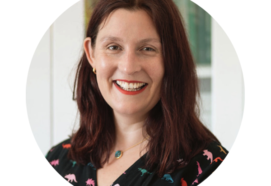In this ‘RESHAPE Study’ series episode, Professor Tamsin Newlove-Delgado, Franki Mathews, and Dr. Kate Allen provide insight into the findings from the RESHAPE study with regards to how young people sought support for their mental health and accessed services during the COVID-19 pandemic and beyond.
The ‘RESHAPE Study’ series is a new mini-in conversation series that will explore the RESHAPE study and the impact of its findings for parents, teachers, policymakers, and mental health professionals.
Discussion points include:
- Patterns of service contact during COVID and how these findings can inform service provision.
- Insight into the qualitive interviews with parents and young people about their experiences with help-seeking and service access during COVID.
- The experiences of commissioners of child mental health services with regards to commissioning services and the challenges they faced.
- Main implications from the study for meeting children and young people’s needs.
RESHAPE or ‘REflecting on the impactS of covid-19 on cHildren And young People in England: exploring experiences of lockdown, service access and education’ is a large study looking at how life changed for children, young people, and parents during the lockdown and how this may have affected them. This is a follow-on study from the National Study of Health and Wellbeing: Children and Young people and is a joint effort between the University of Exeter, the University of Cambridge, King’s College London and the NHS.
Subscribe to ACAMH mental health podcasts on your preferred streaming platform. Just search for ACAMH on; SoundCloud, Spotify, CastBox, Deezer, Google Podcasts, Podcastaddict, JioSaavn, Listen notes, Radio Public, and Radio.com (not available in the EU). Plus we are on Apple Podcasts visit the link or click on the icon, or scan the QR code.

Tamsin is Associate Professor of Child Public Mental Health at the Children and Young People’s Mental Health Research Collaboration (ChYMe) at the University of Exeter. Her work focusses on studying trends over time in children and young people’s mental health and understanding population need for services and support. Between 2020 and 2023, she was academic co-lead for the consortium designing and delivering NHS England’s Mental Health of Children and Young People in England survey series.

Kate is a Postdoctoral Research Fellow working in the Children and Young People’s Mental Health Research Collaboration (ChYMe) at the University of Exeter. Kate currently works on a project called Kailo which aims to address the social determinants of adolescent mental health. Her work to date has focused on child and adolescent mental health and how we might work to improve support for families experiencing multiple, co-occurring needs.

Franki is a Researcher and Lecturer in Public Mental Health at the University of Exeter. Franki’s passion for working in public health is driven by the desire to help improve lives of those affected by poor mental health, and improve access and availability of effective evidence-based services and treatments. Her current projects involves working with citiesRISE, an international organisation, alongside other stakeholders to develop an impact-facing programme of research. The focus of this work includes the mental health and wellbeing of children and young people in international contexts.
Transcript
[00:00:01.350] Clara Faria: Hello, welcome to the RESHAPE Study series for the Association for Child and Adolescent Mental Health, or ACAMH for short. This is a new mini In Conversation series that will explore the RESHAPE Study and the impact of its findings for parents, Teachers, policymakers and mental health professionals. I’m Clara Faria, I’m ACAMH Young Person Ambassador, and today, I have the pleasure of interviewing Professor Tamsin Newlove-Delgado, Franki Mathews and Dr. Kate Allen from the University of Exeter.
“RESHAPE,” or “REflecting on the impactS of covid-19 on CHildren And young People in England,” is a large study looking at how life changed for children, young people and parents during the lockdown and how this may have affected them. This is a follow-on study from the National Survey of Mental Health and Wellbeing in Children and Young People, and it is a joint effort between the University of Exeter, the University of Cambridge, King’s College London and the NHS.
In this episode, we will focus on how young people sought support for their mental health and accessed its services during the COVID-19 pandemic and beyond. If you’re a fan of our In Conversation series, please subscribe on your preferred streaming platform, let us know how we did, with a rating or review, and do share with friends and colleagues.
Welcome, Tamsin, Franki and Kate. Can you each start with an introduction, giving a short overview of what you do?
[00:01:39.299] Professor Tamsin Newlove-Delgado: Thank you, Clara, and thank you for inviting us along to speak today. So, I’ll kick off. I’m Tamsin Newlove-Delgado. I’m Associate Professor of Child Public Mental Health at the University of Exeter. My background is in child psychiatry and in public health and my research programme focuses on understanding children and young people’s mental health at a population level and about trying to develop services that meet that need. I’m based in the Children and Young People’s Mental Health Research Collaboration, that’s ChYMe, at the University of Exeter, where we have a really broad range of research, ranging from things like public health and prevention in child mental health, all the way to intervention in trials. Franki and Kate are also based in ChYMe, as well, but I will pass over to them and let them introduce themselves. So, Franki, would you like to go next?
[00:02:29.340] Franki Mathews: Hi, thanks, Tamsin. My name is Franki Mathews. I’m a Researcher based in ChYMe and I have a particular interest in understanding how we can help improve the lives of children affected by poor mental health. And I’m really fortunate, also, to work on projects within NIHL, School for Public Health Research.
[00:02:45.540] Dr. Kate Allen: Hi, everyone. I’m Kate, I’m a Postdoctoral Research Fellow in ChYMe at the University of Exeter, and I’ve got an interest in early intervention and prevention research in child mental health and specifically, how we can better support families who experience multiple co-occurring needs. Right after my PhD, I was fortunate to work with Tamsin and Franki on the RESHAPE project.
[00:03:09.180] Clara Faria: Before we get into the findings of RESHAPE for service access, could you give us a brief overview of the study? What does the RESHAPE project involve and who took part?
[00:03:20.540] Professor Tamsin Newlove-Delgado: Okay, so, I’ll take that one. As you said, Clara, in your introduction, the RESHAPE project began as follow-on research from the NHS England’s Mental Health of Children and Young People’s Surveys, which I’ll refer to as MHCYP when I remember, throughout. So, the aim of these follow-on studies was really to find out more about the experiences of children and young people and parents that, kind of, lies behind the figures that we see in the surveys, and also, to do some deep dives into areas of interest that might be of interest to young people themselves, to policymakers, to Researchers and professionals. So, for example, we conducted interviews looking at service access, which we’re going to be talking about today, also experiences of education in lockdown. We’ve conducted follow-on studies, also, on eating disorders and also, special educational needs and disabilities, which I think will feature in some of these podcasts.
And most of these studies were qualitative studies. So, with the exception of the eating disorders work, these were either online or telephone interviews and depending on the topic, they would’ve been with children, young people and also, with parents. And the RESHAPE work also, I suppose, informed some further bits of research, as well. So, for example, the research that Kate’s going to talk about with Commissioners about their experiences of commissioning Child Mental Health Services. So, hopefully, that gives you a bit of an overview about what RESHAPE’s all about.
[00:04:46.340] Clara Faria: Thank you so much, Tamsin. That’s very comprehensive for our viewers. And I’m really curious, because when you were planning and designing the service access studies, you did so during the pandemic, which certainly, must have required an enormous amount of creativity. What was the initial idea behind your programme of work and what were the main challenges you faced at the time?
[00:05:08.710] Professor Tamsin Newlove-Delgado: Yes, so this programme of work, sort of, started off as part an NIHR advanced fellowship which I had, and which was awarded in 2019. So, this all began with a programme of fellowship work, which was intended to examine trends over time in child mental health and also, look at children and young people’s access to services and how that had changed over time. And so, it was, sort of, early in 2020 when we were putting some of these plans together, that I think we became, obviously, increasingly conscious of COVID as an issue. And then, in March 2020, it rapidly became apparent that COVID was really going to have a very dramatic impact on all aspects of children and young people’s lives, as well as for the rest of us, as well.
So, we did have to, I suppose, adapt quite quickly and think about, well, we were going to carry out qualitative interviews about service contact, but now, this does give us the opportunity to examine, well, what’s happening to access to services? What’s happening to help seeking in the context of the pandemic? Which seemed like a really important question. And alongside that, there was also work going on to carry out another wave of the MHCYP surveys to examine in the pandemic. So, one of the opportunities there was to work with NHS England, NAT SEN, Office for National Statistics, as well as our collaborators at Cambridge and also, at King’s, to think about how can we, I guess, pivot our research to make the most of this opportunity and really, kind of, get the evidence that we need together?
So, yeah, it was quite challenging, particularly when it’s your fellowship and you feel, you know, a bit stressed about delivering what you said you would deliver. But on the other hand, I think, well, firstly, the fact that everyone adapted quite quickly to working with Zoom and Teams meant that we could continue to collaborate really closely. And I think, sort of, secondly, people were just very willing to go above and beyond and work really hard and be flexible and collaborate to make things happen. So, I think that that’s probably my view, but I wonder – I don’t know, Franki, whether you’ve got anything to add in terms of how we thought about the qualitative study for children and young people.
[00:07:18.590] Franki Mathews: Yes, thanks, Tamsin. So, as Tamsin said, the experiences have helped, particularly from Professional Services for Mental Health Concerns Qualitative Study. That one was already planned prior to the pandemic. So, in response to the pandemic, this study was tweaked just slightly by altering the time period that we were asking participants about with regards to service access for mental health concerns. So, we started from the initial lockdown in March 2020, for an 18-month period, so – and that was the time period we wanted to understand about their experiences of help seeking during that time.
One challenge that we were particularly aware of was that we were contacting families at a time that could be really difficult. Restrictions had just been relaxed and schools were opening more consistently again, and we were very conscious that we were asking for their experiences during a time when they were rapidly trying to get back to what might be considered a more normal practice again.
[00:08:10.740] Dr. Kate Allen: In relation to the Commissioner study we conducted, we actually did this more recently. So, we spoke to the Commissioners in, kind of, May and June this year. So, we didn’t face any, kind of, pandemic related challenges in, kind of, planning and designing that study per se, ‘cause that was, kind of, later down the line. But, kind of, a little bit like Tamsin alluded to before, the fact that we are now also used to, kind of, online meetings and working online meant that Commissioners were really happy to, kind of, speak to us online and it meant that we were able to reach and speak to a range of Commissioners across England with relative ease. So, in that respect, there were some, kind of, positive benefits in the, kind of, conduct of that particular study.
[00:08:52.150] Clara Faria: That’s really interesting, and as you all referred to before, during the pandemic, many face-to-face CAMHS services were disrupted. There was also a widespread concern among Researchers, policymakers and parents that the disruptions to daily life could severely impact the mental health of young people. Tamsin, could you tell us a bit more about your research with the National Child Mental Health Surveys and what does this data tell us about patterns of service contact during COVID? Did people find it hard to transition to remote service access and how that worked?
[00:09:25.860] Professor Tamsin Newlove-Delgado: Thanks, Clara. So, I suppose one of the things I just wanted to say before I talk about that is just to make clear that I’m speaking in my role as an independent academic at the University of Exeter when I talk about the surveys. So, I’m not speaking on behalf of NHS England or the consortium. The surveys do provide our official statistics, so they are – I’m not speaking on behalf of NHS England there.
So, I would say that it’s, you know, been a really amazing experience to be part of that consortium and delivering those surveys and just maybe to say a little bit about them, briefly, for those that aren’t familiar, is that the Survey Series are England’s official national statistics on children and young people’s mental health, and we had a large baseline National Survey in 2017, which was then followed up in 2020, 2021, 2022 and actually, again in 2023. And the findings of that 2023 survey will be available later on, in November. So, that’s a watch this space here.
So, I think the real value of the series itself is that the participants were originally selected to be as representative as possible of the population of England in terms of children and young people. And also, that’s really detailed sociodemographic information available on that baseline, as well as on their mental health status. So, I think the main findings of those follow-up surveys have been very well reported.
In brief, what we found was this very sharp increase in the prevalence of probable mental disorder between 2017 and 2020. So, in children, that was a rise from one in nine to one in six. And I think the other striking thing is that we found that that high level of problems has been sustained. So, we haven’t yet seen a fall in the prevalence of that probable disorder, although it remains to be seen what future surveys will tell us.
So, thinking about the survey, the survey did ask questions about service contact and help seeking. So, in 2020, there were questions about whether the pandemic had disrupted or involved changes in how children and young people access services. So, some young people told us that they had appoi – had appointments that were moved online. Some young people had appointments that were cancelled. But I think one of the really interesting findings was about help seeking, and what we found in 2020 was that one in five young people aged 17 to 22 who have a probable disorder reported that they decided not to seek help for a mental health concern with the pandemic. And that a further one in five reported they’d also not sought help for a mental and a physical health concern because of the pandemic.
So, when you take that together, that’s around, what, 40%, two fifths of young people, reporting that they’d decided not to seek help for a mental or physical health concern because of COVID. And that was amongst young people who had a probable mental disorder, according to the algorithm that we used for the surveys that determine that. And I probably should’ve mentioned that earlier, but what we used to determine probable disorder was an algorithm, which took the strengths and difficulties questionnaire to generate a likelihood of whether that child or young person would have a probable mental disorder.
So, I think that’s – that was really our key finding from 2020, was about the help seeking and some of the children and young people not seeking help. In the 2021 survey, which asked about the previous time, since August 2020, we also asked about where children, young people and parents had sought help from. And that was also, you know, really interesting to me, because it seemed the most popular, or the most common source of help that children, or that parents were using to seek help for their children, was education. That was from around two thirds of participants, but that fewer were seeking help from health services, for example. So, that was quite interesting, and that for young people, their main source of help was friends and family, and that again, they were less likely to seek help from health services or the education services.
So, I think one of the things that we wanted to do was understand more about the reasons why young people might seek help, or not seek help, and about their experiences of help seeking during the pandemic. And that’s really where Franki’s study comes in.
[00:13:55.500] Clara Faria: Thank you, Tamsin. That’s really interesting, and since you referred to Franki’s work, I know that one of the studies you conducted, as part of RESHAPE, was a series of qualitative interviews with parents and young people about their experiences with help seeking and service access during COVID. Franki, could you talk us through the study design and its main findings?
[00:14:15.620] Franki Mathews: Yes, of course. So, this qualitative study recruited participants from the MHCYP 2017 and 2020 surveys, and they had responded, in particular, to a question asking the parents of children and young people, separately, if they’d been in touch with services in the past year regarding a concern for either their child’s mental health or their own mental health. Participants who reported contact with services during the pandemic, so this is the end of March 2020 to the end of September 2021, they were asked about their experiences of contact with professional services, so that would include Teachers or school staff, Counsellors, mental health specialists, GP.
And we conducted reflective thematic analysis on the interviews, transcripts that were reported, and we generated five themes. And the first of the themes was around the process, so participants’ experience of the process that they went through in order to get help for mental health concerns.
The second theme was the priorities and pressures, and there was a lot of awareness that COVID-19 was a priority and that services, including the NHS, were under a lot of pressure.
The third theme was experiences and expectation, and that was impacted by the priorities and pressures, because it was about the experience of attempting to get help during the pandemic and also, how that made them manage and influence their expectations of what help they were likely to be able to source.
Our fourth theme was the relationship with the professional, and this was a lot around participants talking about their relationship with the professional and how that impacted their experience of help seeking.
And finally, the fifth theme was the recommendations. So, participants provided their own thoughts about what recommendations they had, if they were to experience the same experience of help seeking during that time period.
[00:15:59.480] Clara Faria: That’s really interesting, Franki. I’m really curious to know more about the areas that you identified. Were there any particular findings in your qualitative study that surprised you, and how can these findings inform the public and help us prepare for future pandemics?
[00:16:14.009] Franki Mathews: Yeah, as a team, I think we were particularly interested in the adaptations that people made to what might be considered usual help seeking practices, so there, talked about choosing not to seek help. Participants also reported being aware that the NHS priority was treating COVID and responding to COVID and they were aware of pressures on clinical staff, and because of that, their expectation of being able to access mental health support during that time was, for the most part, reduced. And so much so that some participants expressed their gratitude at being able to get any help at all for their mental health concerns.
And so, one thing in terms of informing the public and helping prepare for future pandemics, we asked participants about recommendations that they would have if the same experience was to repeat. And some of the recommendations included having clearer, accessible information on how to get the help. Participants also recommended being followed up. So, those on a year-long waiting list, for example, they wanted to have a check-in, maybe, to see if they were okay and really, to let them know that they’d not been forgotten about in such a long period of time. And also, within that message itself, we need to make sure that people know what to do when they’re waiting for support and what to do if they still need help within that period of time that they are waiting for help.
And the other main point is if we are looking, going forward, to basing mental health support hubs within schools, that in terms of the pandemic, is that there is a contingency plan for children and young people in case of future school closures, so that they can continue to reach out and receive necessary support from the places that are being given funding to be able to support them.
[00:17:51.350] Clara Faria: Thank you so much. Linking to your study, another Q study that you conducted was the one with Commissioners of Child and Mental Health Services about their experiences of commissioning services and the challenges they faced during the pandemic, which [inaudible – 18:05]. Could you tell us a bit more about the study, for example, who are the Commissioners you talked to?
[00:18:11.039] Dr. Kate Allen: Yeah, of course. Thank you, Clara. And so, like you say, we designed the qualitative study to explore Commissioner’s experiences of commissioning services for child and adolescent mental health, their perspectives on the needs of their populations, the challenges they face and their needs for, kind of, support and data. So, we found few studies have really spoken to Commissioners about this kind of thing and about their experiences and we thought that speaking to them would be a really useful way to, kind of, develop a better understanding about their roles and also, how we might be able to best support them moving forward.
So, we conducted interviews with 12 Integrated Care Board Commissioners from across England between May and June 2023, and these Commissioners were responsible for co-ordinating and planning Child and Adolescent Mental Health Services, so that includes CAMHS. And the Commissioners we spoke to had a range of different backgrounds and experiences and geographical footprints. Some of them had been in the role for, kind of, six months to a year, whereas others had been in the role for several years. So, I think this was one of the strengths of the study in that we were able to speak to a range of Commissioners from across England. And in terms of where we’re at with the study now. We’ve just finished analysing the data, using something called framework analysis, and we’re in the process of writing up the findings at the moment.
[00:19:34.920] Clara Faria: That’s really exciting, and I know you’re still in the process of writing up the findings, but can you share with us the key conclusions after doing that framework analysis? Did anything come up in the conversations that you were not expecting?
[00:19:48.240] Dr. Kate Allen: Yeah, good question. So, there was lots of really interesting findings from the Commissioner study. I’ll just focus on some of the, kind of, key bits. So, one of the things, Commissioners said that they had seen increases in child and adolescent mental health needs, both nationally and locally, and in particular in areas such as neurodevelopmental disorders, disordered eating, depression and anxiety, self-harming and complexity and acuity of presentations.
They felt like COVID-19 was one of the key drivers for these changes. While they acknowledged that rises in demand were already happening before the pandemic, they felt that issues, such as social isolation and online education caused by the pandemic, had affected mental health and contributed to things like school-based avoidance. Furthermore, they felt that factors exacerbated by the pandemic, so things like social and economic factors, and also, inequalities in access, had also negatively impacted children’s mental health.
I think one of the, kind of, really interesting findings from the Commissioner study was that Commissioners recognised a real need to balance specialist support with early intervention and prevention to address these rises in need. So, Commissioners felt that CAMHS shouldn’t be perceived as the answer to everything, which they felt that sometimes it could be, and that early intervention and prevention was key to address child and adolescent mental health. So, they were really positive about the value of this early intervention and prevention and wanted to work towards making sure early support services were implemented and better utilised to help reduce demand on CAMHS, but also reduce overall need.
[00:21:40.900] Clara Faria: Thank you, Kate, and in terms of research narrative, I think the three studies you conducted, they link together very nicely, and they were conducted in different periods of time. Did one study’s findings help design the other? How was that process of study design and sharing findings between the studies?
[00:21:59.220] Professor Tamsin Newlove-Delgado: I mean, I think I would say that it’s often the case that things appear to link most nicely, or make a clear narrative, when you look back at them, and at the time, you’re often, you know, just trying to make things make sense. But yes, I mean, that said, when we saw the findings of MHCYP 2020, or when we were thinking about those National Survey findings, it was very obvious that it was important to, you know, make sure we did some research to explore the experiences behind those findings, behind those numbers, and to really to hear the voice of children and young people and families about their experiences. So, that led very nicely into the qualitative study and also, helped inform the topic guide in terms of what – where we wanted to ask about.
And I think the study with Commissioners, although that came along slightly later, gave us the opportunity to examine, I guess, issues around service contact and access and what happened during the pandemic, and how we’re adapting afterwards, from another’s perspective, and that’s the perspective, as Kate said, that we often don’t hear about. So, the voices of Commissioners are not often heard in research studies. So, I think that was a – that was something that linked really well. I think, Franki or Kate, have you got anything to add to that in terms of how things linked or what links worked for you?
[00:23:15.179] Franki Mathews: Yes, absolutely, Tamsin. The MHCYP surveys definitely influenced the experiences of help, particularly for professional services for mental health concerns during COVID study, as it was the source of the study itself. So, the question came from the MHCYP surveys where we asked participants about their experiences of help seeking, and what we wanted to do was, as you’ve said, capture the experiences and from their own voices, that was in addition to what the survey could capture alone.
[00:23:42.590] Dr. Kate Allen: Yeah, I don’t think I have too much to add, really, on what Tamsin said. I guess in terms of the Commissioner study, like Tamsin said, it was very much informed by, kind of, the work we’d already done and particularly the qualitative work Franki had done. So, hearing about the findings from that study in our Research Group meetings, kind of, really helped inform our topic guides for the Commissioner study, so the questions we wanted to ask, as well as the things that we wanted to probe into. And I guess now that we’re in the process of writing up the findings, it’s been really helpful to be able to, kind of, cross-reference our findings with the work that we’ve already done on the RESHAPE project, to create a more in-depth picture of child mental health need and what might be useful moving forward.
[00:24:26.110] Clara Faria: Thank you, Kate, and when looking at each study’s main findings and combining them together, what do you consider are the main implications for meeting children and young people’s needs at the present moment and also, helping plan for the future? I’m particularly curious if you have any particular recommendations for Commissioners or key takeaway messages?
[00:24:48.030] Franki Mathews: Yeah, thank you for that. So, for help seeking during COVID study, people reported feeling put off seeking help for mental health concerns. And so, from the findings in that particular study, I think it’s of utmost importance that messaging is really clear about when people need to get help and how they can access support for mental health concerns going forward.
[00:25:08.559] Dr. Kate Allen: In terms of the Commissioner study, I think one of the, kind of, main implications is that early intervention and prevention is key to meeting the needs of children and young people moving forward. So, it was clear from the Commissioner study that Commissioners are negotiating a really complex and challenging, kind of, political, social, economic landscape that’s changing all the time. And moving forward, it’s important we work with Commissioners to ensure that we’re conducting research that answers the questions they need answering and also, aims to provide them with the evidence and data they need to support them in planning and adapting early support services, as well as specialist support services, such as CAMHS.
[00:25:51.779] Professor Tamsin Newlove-Delgado: So, I think just adding to those points, really, I think what came across from all of the studies and from the National Survey, as well, I think it’s the importance of when we encourage people to seek help, that’s there’s a pathway for them to follow and that we can make sure that we’ve got, you know, right help for the right person, in the right place at the right time, and that we think about systems and networks, I suppose, rather than services in isolation.
I think, as well, as Kate said, I think there’s a real challenge here in terms of the fairly limited resource envelope and how we balance the importance of prevention and early intervention with the demand that we still have for specialist Child and Adolescent Mental Health Services, and that there are many children and young people who are waiting to be seen and who could really benefit from that specialist help. But how do we do that at the same time as thinking about prevention and early intervention pathways, too, and joining things up?
And I suppose, I guess, reflecting back on the pandemic in general, there’s something about the importance of children and young people’s voices being heard and being represented and being respected that’s really important. And particularly when we’re responding to something like a health emergency, such as COVID, that that mustn’t be lost. And I think for those of us that are involved in either research or practice with children and young people, that it’s really our responsibility to amplify that voice. And also, as Kate mentioned, to provide the evidence that’s needed for decision-makers so that they can make the decisions that are right for our children and young people.
[00:27:22.640] Clara Faria: Thank was a really moving ending, Tamsin and Franki and Kate. Thank you so much for your time and also, for conducting such important and necessary studies. For more details on Tamsin Newlove-Delgado, Franki Mathews and Kate Allen, please visit the University of Exeter and ACAMH websites. You can find our website at www.acamh.org, and also keep an eye on our Twitter @ACAMH. ACAMH is spelt A-C-A-M-H. Do keep an eye out for other podcasts in the RESHAPE Study series, including episodes on lockdown experiences, eating disorders and special education needs and disabilities. And don’t forget to follow us on your preferred streaming platform, let us know if you enjoy the podcast, with a rating or review, and do share with friends and colleagues.




